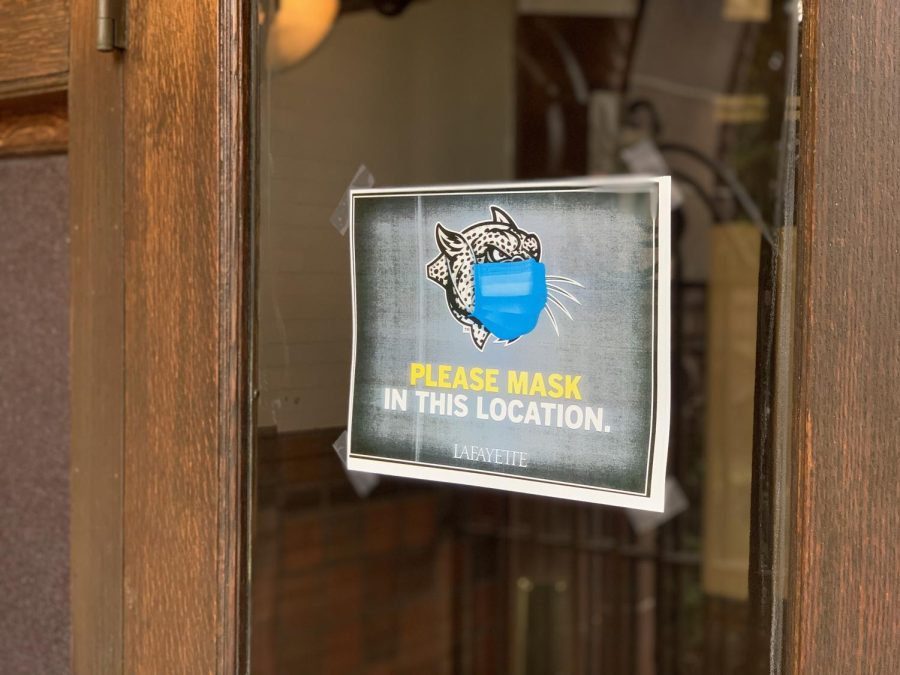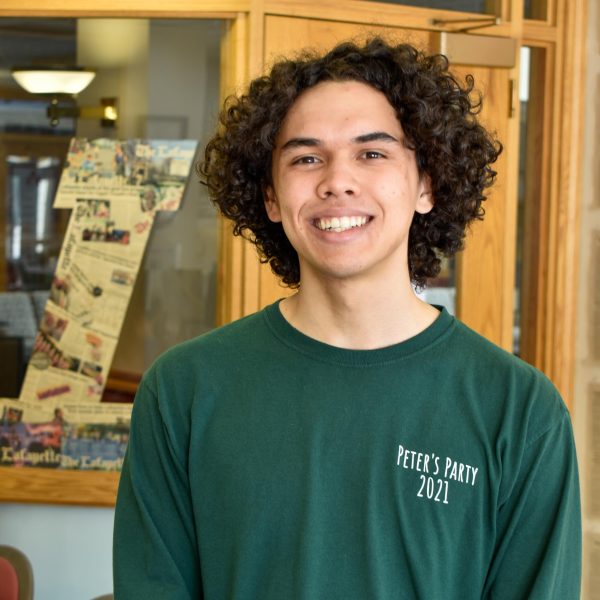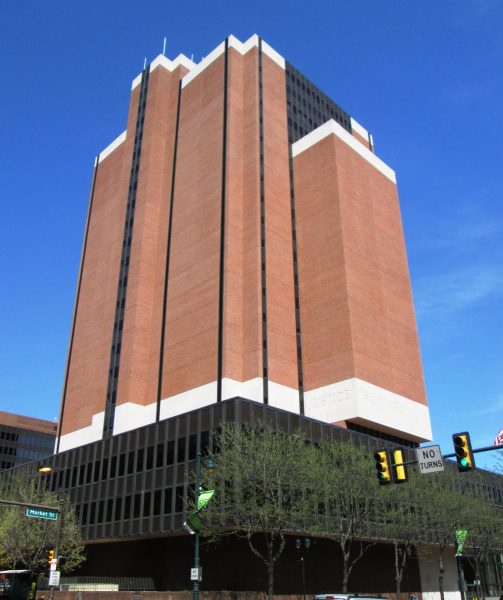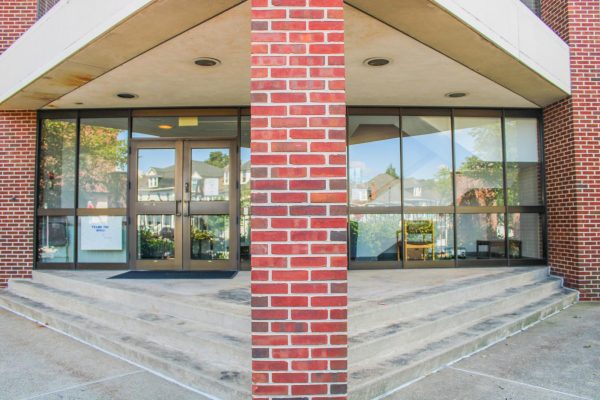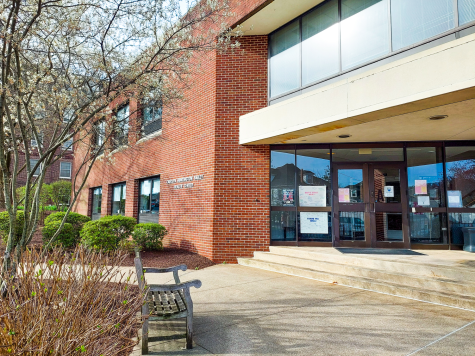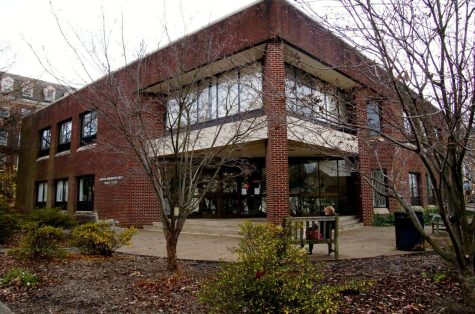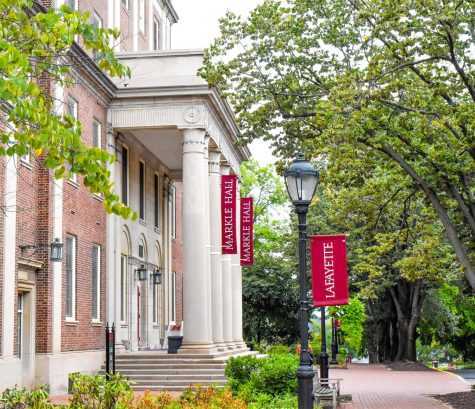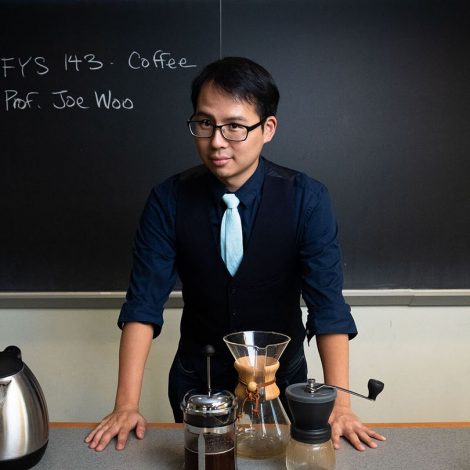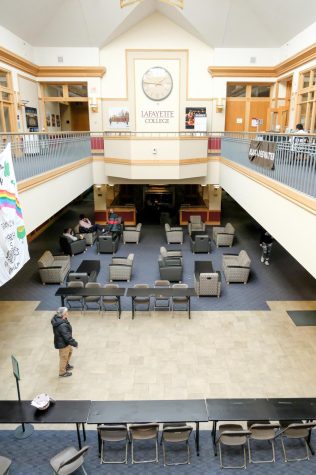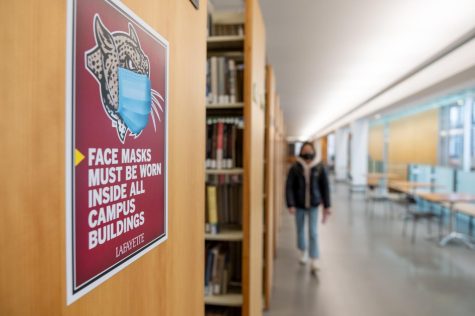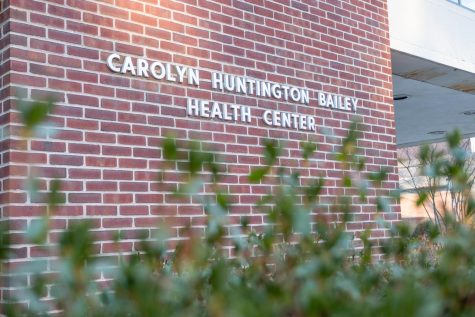How are professors navigating a post mask-mandate campus?
Photo by Trebor Maitin for The Lafayette
New gray signs, such as those posted outside Van Wickle Hall, denote where masks are required.
March 25, 2022
While many professors have opted to forgo masking in their classrooms in the wake of updated CDC guidance, mask requirements persist in the halls and classrooms of faculty, and in at least one department and two academic buildings. Currently, Lafayette has a mask-optional policy and Northampton County is seeing the lowest number of Covid cases, hospitalizations and deaths since the start of the pandemic,
CDC guidelines offer an opening for those to continue masking based on personal preference and risk aversion while the college allows professors to mandate masking within their classrooms.
Religious Studies Professor Yoshuaa Patel wrote in an email to his classes that he was prioritizing “safety over comfort” in his decision to continue requiring masks.
“I think all of us would prefer not to wear masks, right? I mean, I prefer not to wear masks,” Patel said. “My risk profile at this point is such that I still think it’s safer to wear masks. I also personally interact with some higher-risk people who are elderly, and so I feel like there’s a responsibility to kind of take that extra level of precaution.”
Patel disagreed with the college’s decision to drop its mandate. He cited a recent critique from the European subsidiary of the World Health Organization stating that there are now “too few” Covid restrictions considering the spread of the BA.2 subvariant. Chemical Engineering Professor Joseph Woo also noted the emergence of the new variant in explaining why his department requires masks in its labs.
“When it comes to the policies of courses, particularly those where we’re trying to promote proper industrial habits, we felt that it was appropriate to maintain uniformity of messaging throughout the entire semester,” Woo said.
The chemical engineering department has gone a step further than Patel, requiring the use of KN95 masks or their equivalents within the lab. The policy has been in place since January, but there are no plans to drop it any time soon according to Woo, who added that the chemical engineering department offers KN95 masks to students who do not have access to them and will continue to do so throughout the semester.
In the Oechsle Center of Global Education, home to the Anthropology and Sociology, Africana Studies and International Affairs departments, faculty have asked students to continue masking outside the classroom. Professor Hannah Stuart-Gambino, the interim chair of the IA program, said that those departments housed in the building have opted to require masking in all public places after consultation with professors.
“The building decision was based on the program and department heads’ polling of their own faculty, given that there are some people in our building who have personal or family circumstances that make them inclined to ask that our public spaces (halls, study areas, bathrooms) remain masked for now,” Stewart-Gambino wrote in an email.
“Each professor has the authority about mask policies in their individual classes. My own anecdotal observations suggest that different faculty are making varying classroom masking requests,” Stewart-Gambino wrote.
It is unclear whether the building masking policy is merely a recommendation or a requirement; a follow-up email to Stewart-Gambino asking for clarification went unanswered and signs posted outside the building state masks are required within. A mere request to wear masks would be within the parameters of the college guidance, according to Annette Diorio, Vice President of Campus Life.
“I do not think it contradicts our guidance as it appears to be a request,” Diorio wrote in an email, commenting on the ambiguity. “We do not require masking in public areas, nor would we impose any discipline for students who did not mask in public areas, but if faculty want to ask for cooperation in an area that is not altering our stated position.”
Van Wickle Hall also has signs posted asking students to wear masks. Geology professors were not contacted for this story.
Diorio added that she was unaware of any departments requiring masking.
Katalin Fabian, a Government & Law professor, does not require masks in her classes. She said that she gave students the opportunity to anonymously request masks in class in the name of “minority protection,” but that no students have taken her up on the offer.
“Some people continue to wear [masks] in class. Some people ask for the window to be open, which is way better than in January,” Fabian said, noting that the college guidelines were based on CDC guidelines. “I’m following what I understand people’s job is to assess, and I’m not going to pretend to be an expert.”
Fabian later said that should the pandemic worsen again, or should the CDC guidance change, she would amend her mask rule to reflect said developments. In the meantime, however, she is happy about the guidance.
“I’m so glad to see faces, you know,” Fabian said. “I’m delighted we don’t have to mask.”



































































































